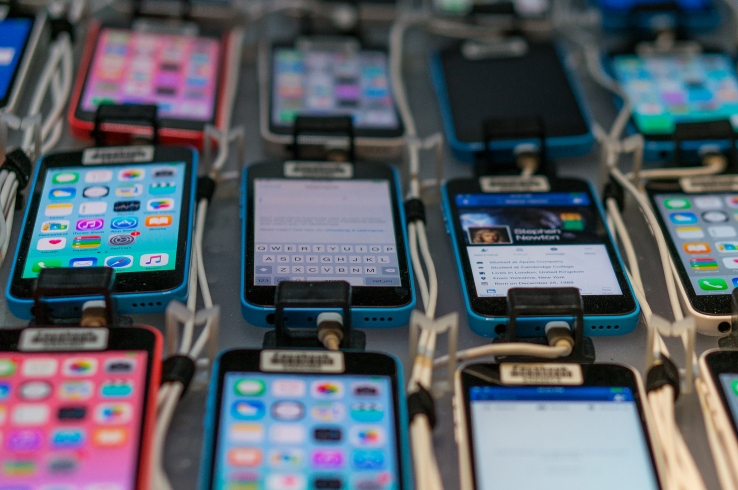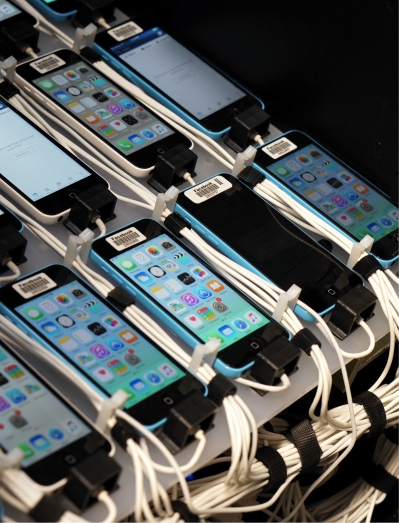
This week, Facebook asked a group of reporters to visit its data center in Plainville, Oregon. It also showed off their mobile application testing lab to test Facebook apps, Messenger, and Instagram.
Currently, the lab contains a total of 60 racks, and 32 racks of mobile equipment are placed on each rack, so that the entire laboratory has nearly 2,000 mobile devices. Each rack has its own separate Wi-Fi signal and is equipped with electromagnetic interference accessories to ensure that surrounding racks do not crowd out Wi-Fi signals.
Each time Facebook makes a change to its mobile app, it will test on these devices to ensure that there are no program crashes and other performance issues. To ensure that all tests are comparable, these phones must be fully restarted after each test.

Picture from: Techcrunch
These mobile devices include common models on the market, such as the basic Samsung Galaxy series, as well as the latest version of the iPhone series. At the same time, these phones will also run versions of the operating system, including all versions of Android since KitKat, as well as from iOS 7 to iOS 9.
In addition, in order to load the latest code, all mobile phones must be connected to the PC and Mac Mini. Corresponding to Android and iOS systems, one rack may have 4 OCP Leopard servers or 8 Mac Minis (since a Mac Mini can only connect 4 mobile phones).
Compared to testing on physical devices, testing on the emulator is easier, but why does Facebook choose the former?
Facebook team members explained that although the simulator can figure out the cause of the app's error, it doesn't test performance well. "For example, we can't track the 1% performance regression on the simulator, so we chose Physical device testing."
Although Facebook did not clearly state how they loaded the latest code onto these mobile devices in addition to using the server tool Chef, the staff mentioned that the lab came from Facebook's work in the field of CT-Scan (CT- Scan is a performance monitoring service. Perhaps we can get some clues from it.
Earlier, engineers only tested the app on one device. Given the wide variety of mobile phones and tablet devices on the market, this was not enough, so a small team within Facebook’s Production Engineering department was Start to set up these racks.

Picture from: Techcrunch
The early construction of these racks was very simple and all used metal materials, which made the Wi-Fi signals unable to receive effectively, resulting in poor overall system operation. Afterwards, the staff tried to build a wall that could hold 240 devices, but that would take up too much space.
Now the new rack not only solves the Wi-Fi signal problem, but also adds new features - cameras are installed to track various conditions on the device, but the staff does not seem to have started using this feature.
For the next few days, lab workers are trying to increase the number of devices on each rack to 64, while making code load to mobile devices faster. However, perhaps more importantly, Facebook is planning on the design of open-source racks and the disclosure of Chef's core technical secrets.
Of course, Facebook is not the only one with the same type of laboratory. Microsoft, Amazon and Google all have open mobile application test platforms. If you want to test your own app, choose one.
Connector 2.5Mm Pitch,S11 Connectors,Welding Bar Connectors,Pressure Weld Bar Connector
YUEQING WEIMAI ELECTRONICS CO.,LTD , https://www.weimaiwafer.com